The World Economic Forum released a white paper, “The Economic Rationale for a Global Commitment to Invest in Oral Health.” This paper was created in collaboration with the American Dental Association, Colgate-Palmolive Company, and Henry Schein. This white paper is the first in a planned series that explores the role of various sectors in improving oral health. The intention of the authors is to inspire international health leaders, policy-makers, and private sector partners to reconnect the mouth to the body in pursuit of a healthier future for all.
Mpox Cases on the Rise in Pennsylvania

Mpox cases continue to rise in Pennsylvania and the surrounding states. The Pennsylvania Department of Health (DOH) is encouraging providers to continue to screen all patients with suspected mpox for travel to the Democratic Republic of the Congo (DRC) or recent contact with someone who has traveled to DRC. Providers should be aware of the more stringent infection control measures required for Clade I mpox and are encouraged to follow the CDC guidelines for infection prevention and control for mpox. Outreach, education, testing and vaccination continue to be important. According to DOH, Hispanic men are significantly impacted and there is need for these interventions among the migrant worker population. See mpox toolkit for more information on mpox and promotional materials.
Clinical Quality Measures for Eligible Professionals: 2024 Update Released
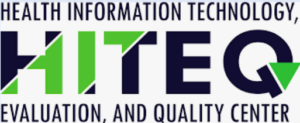
A new spreadsheet developed by the HITEQ Center provides a crosswalk of Clinical Quality Measures and their electronic specifications as defined in the 2023 update for Eligible Professionals (Clinicians). Fields include the crosswalk of measures with related information about CMS, NQF, and CMS Quality or MIPS ID, and Telehealth Eligibility, as well as inclusion in HRSA BPHC Uniform Data System (UDS) CY2024, Million Hearts, CMS Quality Payment Program (QPP) – APM Performance Pathway (APP) Measures, 2024 APM Performance Pathway: CMS Web Interface Measure Benchmarks for CMS ACO Shared Savings Program, CMS Core Set (Child Core Set Medicaid / CHIP): HEDIS Specified, CMS Core Set (Adult Core Set Medicaid): HEDIS Specified, Core Quality Measures Collaborative (ACO / Primary Care). Links are included throughout. Download the spreadsheet here.
Medicare Telehealth Legislation Takes Another Step Forward

Last week, the House Energy & Commerce Health Subcommittee advanced a two-year extension of Medicare telehealth payment policies to the full Energy & Commerce Committee. The bill, H.R. 7623, the Telehealth Modernization Act of 2024, includes a two-year extension of current policies and would also ensure that Medicare reimburses telehealth visits at the same rate as in-person visits. This payment parity language, along with the rest of the policy extensions, passed the subcommittee by a 21-0 bipartisan vote. The full Committee will consider the bill in the coming months.
New Study Provides Summary on Rural Behavioral Health Workforce Retention
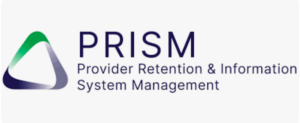
According to a new study by the Provider Retention and Information System Management (PRISM), behavioral health professionals who had an experience with rural health care during their training are more likely to work and stay in rural areas when they enter practice. PRISM’s Behavioral Health study that was published by The Journal of Rural Health is now available here. This study assesses the amount of exposure to care in rural underserved communities that behavioral health clinicians received during training and how it impacted their success and retention in rural safety net practices.
America is Experiencing More than a Red-Blue Divide

If you’re serving multi-generations like most Community Health Centers are, you’ll want to look at the charts in Washington strategist Bruce Mehlman’s Six-Chart Sunday newsletter. The infographics highlight some startling differences between older and younger generations across an array of topics, including values, economics, party identification, and happiness.
Appeals Court Approves Drugmakers’ Federal 340B Contract Pharmacy Restrictions
 On May 21, the Federal Appeals Court ruled that the 340B statute doesn’t prohibit drugmakers from placing any conditions on distribution of 340B drugs to covered entities. However, the ruling left open the possibility that more stringent conditions by drugmakers could be illegal. NACHC is analyzing the appeal and its impact on FQHCs. Click here to read the appeal.
On May 21, the Federal Appeals Court ruled that the 340B statute doesn’t prohibit drugmakers from placing any conditions on distribution of 340B drugs to covered entities. However, the ruling left open the possibility that more stringent conditions by drugmakers could be illegal. NACHC is analyzing the appeal and its impact on FQHCs. Click here to read the appeal.
HRSA Regional Office Offers Free Presentation on Securing Federal Grants
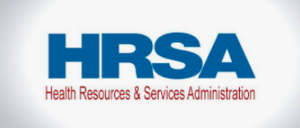 The U.S. Department of Health and Human Services (HHS), Health Resources and Services Administration (HRSA), Region 3 Office, will present key steps and resources for seeking federal grants. Attendees will have a chance to learn about identifying HRSA grant opportunities, navigating the grant application process, and accessing technical assistance resources. In addition, the session will include tips from a current HRSA grantee and details on how to become a HRSA grant reviewer. Individuals at all levels of experience, from those considering a first grant submission to those with prior grant writing experience, are welcome. PLEASE NOTE: The registration site also includes the full grant writing series, Ready! Set! Write! Grant Writing from A to Z. Scroll down the page to register for the free federal session scheduled for Tuesday, June 4, 9:30–11:00 am. Click here to register!
The U.S. Department of Health and Human Services (HHS), Health Resources and Services Administration (HRSA), Region 3 Office, will present key steps and resources for seeking federal grants. Attendees will have a chance to learn about identifying HRSA grant opportunities, navigating the grant application process, and accessing technical assistance resources. In addition, the session will include tips from a current HRSA grantee and details on how to become a HRSA grant reviewer. Individuals at all levels of experience, from those considering a first grant submission to those with prior grant writing experience, are welcome. PLEASE NOTE: The registration site also includes the full grant writing series, Ready! Set! Write! Grant Writing from A to Z. Scroll down the page to register for the free federal session scheduled for Tuesday, June 4, 9:30–11:00 am. Click here to register!
Federal Poverty Income Guidelines for 2024 Released
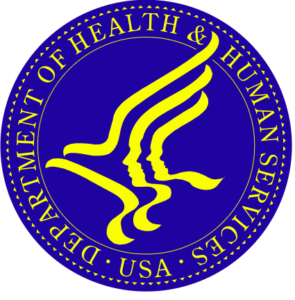 The Department of Human Services (DHS) has announced implementation in Pennsylvania of the 2024 Federal Poverty Income Guidelines (FPIG), which were issued by the Department of Health and Human Services (HHS) on Jan. 17, 2024. The FPIGs are the basis for FQHC sliding fees and the income eligibility limits for several categories of Medicaid whose regulations are published in 55 Pa. Code (relating to human services) and administered by the PA Department of Human Services. Click here to read the notice in the PA Bulletin.
The Department of Human Services (DHS) has announced implementation in Pennsylvania of the 2024 Federal Poverty Income Guidelines (FPIG), which were issued by the Department of Health and Human Services (HHS) on Jan. 17, 2024. The FPIGs are the basis for FQHC sliding fees and the income eligibility limits for several categories of Medicaid whose regulations are published in 55 Pa. Code (relating to human services) and administered by the PA Department of Human Services. Click here to read the notice in the PA Bulletin.
High Uninsured Rate Persists Within Underserved Groups Due to Immigration-Related Barriers
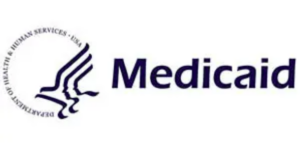 People who are immigrants face a variety of systemic barriers to obtaining health coverage. Many have jobs that don’t offer employer-sponsored health coverage or face barriers in obtaining those benefits. Approximately 9.5 million adult immigrants meet income requirements to enroll in Medicaid, but 45% (4.3 million) of them are barred from enrolling due to immigration-related eligibility requirements. While Affordable Care Act marketplaces, like Pennie, have less restrictive immigration-related eligibility requirements than Medicaid, it still blocks those who have an undocumented immigration status from enrolling in coverage. Approximately half of people without a documented status are uninsured. Comprehensive immigration reforms are the pathway to citizenship and could dramatically increase ability to sign up for coverage through employers or through public coverage.
People who are immigrants face a variety of systemic barriers to obtaining health coverage. Many have jobs that don’t offer employer-sponsored health coverage or face barriers in obtaining those benefits. Approximately 9.5 million adult immigrants meet income requirements to enroll in Medicaid, but 45% (4.3 million) of them are barred from enrolling due to immigration-related eligibility requirements. While Affordable Care Act marketplaces, like Pennie, have less restrictive immigration-related eligibility requirements than Medicaid, it still blocks those who have an undocumented immigration status from enrolling in coverage. Approximately half of people without a documented status are uninsured. Comprehensive immigration reforms are the pathway to citizenship and could dramatically increase ability to sign up for coverage through employers or through public coverage.
